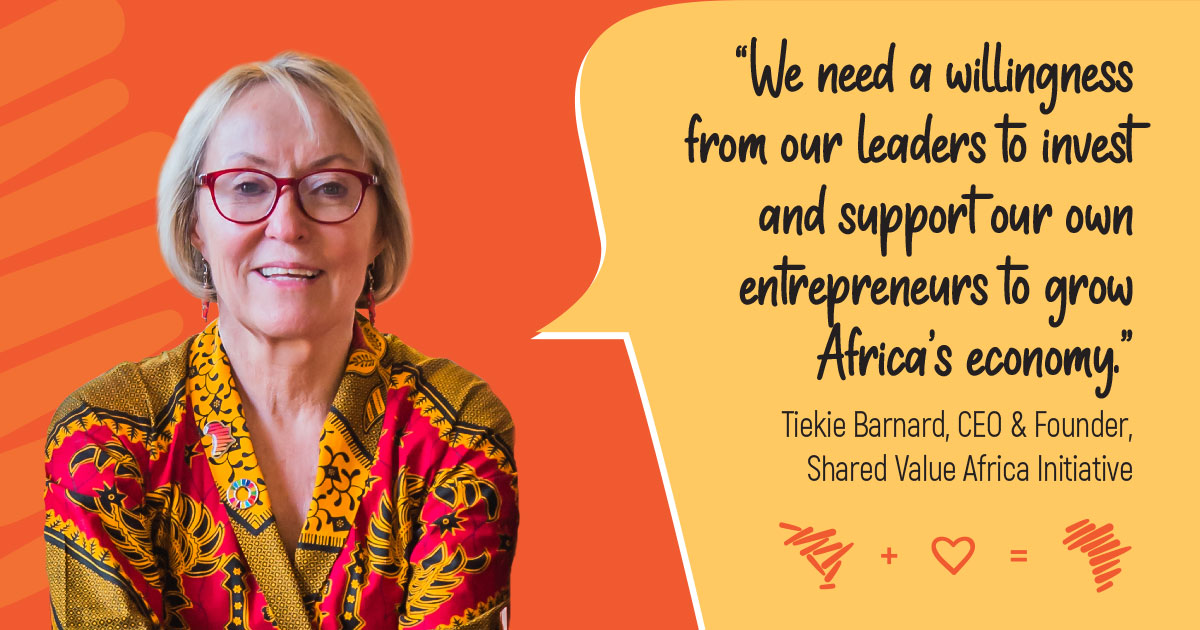The Rise of the African Entrepreneur
African entrepreneurship is central to the continent’s future prosperity. Young Africans, who start businesses, generate jobs, build wealth and capture growth opportunities will create the biggest business opportunities in the coming decade.

Africa has the highest number of entrepreneurs, according to the World Bank, and a large percentage of these represents survival entrepreneurs pushed into entrepreneurship through unemployment. Similarly, the entrepreneurial potential of Africa’s young people is unmatched globally. However while entrepreneurship is growing rapidly in Africa, entrepreneurs continue to face so many local and domestic challenges that impede their efforts, including a lack of access to funding, support services, skills training, and infrastructure, as well as administrative barriers. There are even bigger obstacles for our female entrepreneurs to overcome.
Being an entrepreneur is exciting but risky. According to Investopedia’s definition, which I agree with: “An entrepreneur is an individual who creates a new business, is commonly seen as an innovator, a source of new ideas, goods, services, and business/or procedures. However the biggest burden for any entrepreneur is that we bear most of the risks and at times enjoy very little rewards.”
In Africa we see young people identifying social issues within their communities and innovating and creating businesses from almost nothing , without the financial support, the business support, and the infrastructure that some of their western counterparts in Europe and America enjoy. Using their drive and passion and sometimes even lacking skills, they initiate necessary and much needed ideas to address social issues in their communities. In doing so, they create their own employment and ensure their survival, with support from their family, friends and communities.
There are some truly amazing creativity and innovation coming out of Africa. This serves as a reminder of what our young people can achieve, especially when challenged and enabled to own and solve the problems they see around them. In fact, some solutions almost sound unbelievable.
In Uganda, 22-year-old Hamidu Biha founded Biha Eco Venture, after seeing that four of his siblings could not find employment despite going to university. He finished school and started Biha Eco Venture, a recycling company that uses eggshells to make eco-friendly products. Eco-charcoal is repurposed clean energy made from poultry eggshell powder. The product has less carbon and protects consumers from toxic fumes. The business also produces products such as Eco tiles, made from eggshell powder to produce affordable tiles for low-income earners, eco fertilizer and eco paint. All products expected to generate significant eco-benefits in Uganda. This is an excellent example of a young business creating shared value, by creating economic value and value for the society and environment.
In Tanzania, after winning the country’s Young Scientist award in 2018, 22-year-old David Denis co-founded Cut off Recycle. Denis’s vision has always been to create and find localised solutions for problems in his hometown. Cut off Recycle is an enterprise that recycles human hair waste into agriproducts, producing fertilizer, pesticide and using hair as fiber to fortify construction bricks.
To illustrate how innovative our African Entrepreneurs are, watch this video on the most promising entrepreneurs in Africa under the age of 25.
Having shared the above, I truly believe that the private sector and investors on the Africa continent have an equal responsibility to rise to the occasion. We need to support local initiatives created for entrepreneurs by local entities, based on our own grassroots knowledge, local expertise and African experiences. Institute simple company policies that favor the use of our young innovators as part of our supply chain or invest in their businesses or in mentorship training programmes. We need a willingness from our leaders and their organisations to invest and support our own entrepreneurs to grow Africa’s economy. It is for these reasons and many more that the Shared Value Africa Initiative (SVAI) launched the African Entrepreneurship Forum and the Shared Value Africa Academy.
In conclusion, allow me to also share that we are currently exploring the creation of a Shared Value Entrepreneurship support fund, which will focus exclusively on female entrepreneurs. Please do not hesitate to reach out should you want more information on all the above or to just connect.
Upwards and onwards,

TIEKIE BARNARD
Founder & CEO, SVAI




